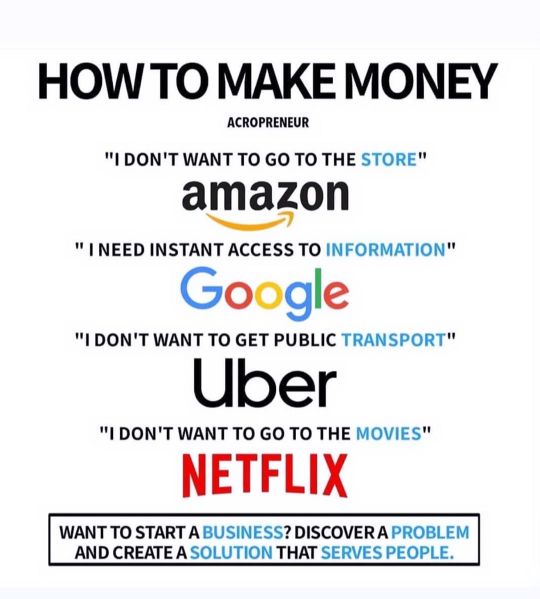#ValuesDriven
Explore tagged Tumblr posts
Text
Defining Your North Star: Identifying Core Values
Introduction
In the journey of self-discovery and personal growth, understanding and living by your core values is akin to having a reliable compass. It guides your decisions, shapes your relationships, and ultimately leads you towards a life that feels authentic and purposeful. This article is a guide to help you identify and define your core values, your North Star in the sea of life's choices.

Understanding Core Values
What Are Core Values?
Core values are the fundamental beliefs and principles that are most important to you. They represent the essence of who you are, what you stand for, and what you prioritize in life. These values serve as a guiding force, influencing your behavior, decisions, and relationships.
The Significance of Identifying Core Values
Identifying your core values provides a solid foundation for living authentically and in alignment with your true self. It empowers you to make choices that resonate with your deepest desires and aspirations. When you live in harmony with your core values, you experience a greater sense of fulfillment, purpose, and inner peace.
The Process of Identifying Core Values
Self-Reflection and Introspection
Set Aside Quiet Time: Find a peaceful environment where you can reflect without distractions. This could be a corner in your home, a quiet park, or a cozy café.
Journaling: Begin by writing down experiences, moments, and interactions in your life that have deeply resonated with you. These can be positive experiences that made you feel truly alive or moments of conflict that revealed what truly matters to you.
Identify Peak Moments: Recognize the times when you felt most fulfilled, satisfied, and authentic. These instances often provide valuable insights into your core values.
Analyze Your Role Models: Think about the people you admire most. Consider the qualities or values in them that you find most inspiring.
Prioritize Your List: Review your reflections and identify recurring themes. From these, begin to prioritize the values that resonate with you the most.
Defining Your Core Values
Narrowing Down Your List
Select Your Top Values: Choose the values that stand out as the most important to you. Aim for a concise list that resonates deeply.
Clarify Each Value: Take time to define what each value means to you personally. How do you embody this value in your daily life?
Write a Personal Statement: Craft a brief statement for each core value. This could be a sentence that encapsulates how you intend to live by this value.
Create a Visual Reminder: Design a visual representation of your core values. This could be a vision board, a piece of artwork, or a screensaver on your device
Living by Your Core Values
Integrating Values into Daily Life
Make Conscious Decisions: When faced with choices, consider how they align with your core values. This awareness will guide you towards decisions that resonate with your true self.
Set Goals in Alignment with Values: Establish personal and professional goals that are rooted in your core values. This ensures that your pursuits are meaningful and purposeful.
Communicate Your Values: Share your core values with close friends and family. This fosters deeper connections and allows others to understand what truly matters to you.
Regular Reflection and Realignment: Periodically revisit your core values. As you grow and evolve, your values may also shift. Reflect on whether they still accurately represent your true north.
Conclusion: Guided by Your North Star
Identifying and defining your core values is a transformative step towards living a more authentic, purposeful life. Your core values act as a guiding light, illuminating the path towards decisions that align with your true self. Embrace this process of self-discovery, and let your values be the compass that leads you towards a life of fulfillment, authenticity, and lasting joy. Your North Star is within you; it's time to let it shine.
#CoreValues#AuthenticLiving#SelfDiscovery#PersonalGrowth#PurposefulLife#InnerGuidance#ValuesMatter#LiveWithPurpose#KnowYourself#MindfulChoices#GuidedByValues#TrueNorth#Introspection#ValuesDriven#AlignWithYourValues#EmpoweredChoices#LiveYourValues#SelfAwareness#PurposefulLiving#AuthenticSelf#follow
7 notes
·
View notes
Text
Lobh (Greed): Finding Fulfillment Beyond Material Gain

The Guru Granth Sahib, the holy scripture of Sikhism, identifies Lobh (Greed) as a major obstacle on the path to spiritual growth and a fulfilling life. Lobh extends beyond just a desire for wealth; it encompasses any excessive craving that can cloud our judgment and lead us astray. In today's materialistic world, where success is often equated with material possessions, Lobh can be a significant challenge. However, by understanding its influence and cultivating a sense of purpose beyond material gain, we can find greater fulfillment in our work and overall lives.
The Harms of Lobh:
Lobh can manifest in various ways at work. An employee consumed by Lobh might prioritize personal gain over the success of the team. They might engage in unethical practices like cutting corners or taking credit for others' work. Here's how Lobh can be detrimental:
Unethical Conduct: The relentless pursuit of material gain can lead to unethical behaviour, damaging your reputation and harming others.
Burnout: The constant striving for more can lead to chronic stress and burnout, hindering your well-being and productivity.
Unsatisfying Work: Focusing solely on material rewards can make you feel disconnected from the intrinsic value of your work.
Damaged Relationships: Lobh can lead to mistrust and competition within teams, hindering collaboration and success.
Finding Fulfillment Beyond Lobh:
The antidote to Lobh lies in cultivating a sense of purpose and meaning beyond material gain. Here's how to find fulfillment in your work without succumbing to greed:
Align with Your Values: Choose a career path that aligns with your values and interests. Work that you find meaningful is inherently more rewarding than simply chasing a paycheck.
Focus on Contribution: Shift your focus from personal gain to the contribution you can make. Find satisfaction in using your skills and talents to benefit others or create something positive.
Celebrate Intrinsic Rewards: Recognize and appreciate the intrinsic rewards of your work, such as learning new skills, developing relationships, or making a positive impact.
Practice Gratitude: Cultivate an attitude of gratitude for the opportunities you have and the resources available to you. This fosters contentment and reduces the need for more.
Combating Lobh in the Workplace:
Here are some ways to embody the spirit of overcoming Lobh and create a more fulfilling work environment:
Fair Compensation: Advocate for fair compensation for yourself and your colleagues. Feeling valued for your work reduces the need to chase external rewards.
Collaborative Culture: Promote a collaborative work environment where everyone feels valued and rewarded for their contributions.
Focus on Growth: Focus on opportunities for professional growth and development. Learning new skills keeps your work engaging and fulfilling.
Healthy Competition: Encourage healthy competition that motivates improvement without resorting to unethical practices.
Lead by Example: Leaders who demonstrate ethical conduct and prioritize the collective good inspire others to do the same.
Lobh Toolkit for a Fulfilling Work Life:
Self-Reflection: Regularly reflect on your motivations. Are you driven by a genuine interest in your work, or solely by the desire for external rewards?
Values Assessment: Identify your core values and choose work that aligns with them.
Gratitude Practice: Take time each day to appreciate the positive aspects of your work and career.
Contribution Mindset: Focus on how your work contributes to the team, organization, or a larger purpose.
Continuous Learning: Pursue opportunities for professional development to keep your work stimulating and intrinsically rewarding.
Volunteer Work: Engage in volunteer work to experience the satisfaction of giving back without expecting anything in return.
Overcoming Lobh is a continuous journey. There will be times when materialistic desires resurface. The key is to be mindful of their influence and actively cultivate a sense of purpose and fulfillment in your work. By focusing on intrinsic rewards, contribution, and ethical conduct, you can achieve a sense of satisfaction that goes beyond mere material gain.
#Lobh#Greed#MeaningfulWork#FindFulfillment#ValuesDriven#IntrinsicMotivation#EthicalConduct#WorkLifeBalance#SikhWisdom#Contentment#GratitudePractice#BeyondMaterialGain#CareerGrowth#PurposefulLiving#OvercomingGreed
0 notes
Text
Echoes Your Values 🌟
Join us in a community where your values find a meaningful echo, shaping a collective vision for success with purpose.
CHECK US OUT! theoffersarecoming.com
Facebook: www.facebook.com/revererealestatecompany
#CommunityEcho#VisionForSuccess#ValuesDriven#PurposefulSuccess#SharedVision#PrincipledCommunity#IntegrityWithPurpose#EchoingValues#CollectivePrinciples#SuccessWithPurpose
0 notes
Text

💡✨ Daily Motivation for Your Best Outcome ✨💡 🔖 Quote: Success comes from alignment, not force. 🎯🧭 🔨 Action: Align your actions with your values, stay true to your purpose, and move forward with clarity. 🧘♂️✨ When your intentions and actions are in harmony, success follows naturally. Be intentional in every step you take. 🚶♀️🔗 🎯 Outcome: If you force it, success will feel hollow. ⚠️💼 True success comes from balance, not pushing beyond your values. Seek alignment, not pressure, and your achievements will be fulfilling. 🌱🏆 🔗hashtag#AlignedActions 🧘♀️#StayTrueToYourPurpose 🎯hashtag#SuccessWithClarity 🤝hashtag#ValuesDriven 🌟hashtag#IntentionalLiving 💭hashtag#MeaningfulSuccess hashtag#DailyMotivation
1 note
·
View note
Photo

I would be very honest, for three years after the first distinct leadership meeting we hosted in a tutorial center, I stopped hosting programs because I broke a lot of principles I stood by, I became untrustworthy, I become very dishonest and I told God I don't think I can ever become the leader he wants me to be because I have compromised a lot and I can't influence young people to do great things anymore but thank God for Jesus Christ, and for the fact that I had to stand up on my feet again and started all over again, it's not like I don't fall short of them again but I learn to stand up again and not make it a system. I believe it's very important to share stuff like this so we don't deceive ourselves into thinking too highly of ourselves. We are all work in progress. . . . . #characterdevelopment #valuesmatter #valuesbasedleadership #valueinvesting #valuesdriven #virtues #MoralityMatters #moralsandvalues #leadership #people #leader #work #share #like #lessonslearnt #lessonslearnedinlife #lessons #lifelessons #lessonslearnedinlifequotes https://www.instagram.com/p/CV7NaVJKm8T/?utm_medium=tumblr
#characterdevelopment#valuesmatter#valuesbasedleadership#valueinvesting#valuesdriven#virtues#moralitymatters#moralsandvalues#leadership#people#leader#work#share#like#lessonslearnt#lessonslearnedinlife#lessons#lifelessons#lessonslearnedinlifequotes
0 notes
Photo

WE ARE ALL THE SAME, BUT DIFFERENT WITH OUR OWN APPROACH AND VISION WHERE ONLY VALUES GET REWARDED." Not everyone does the same job as you do despite having the same title. Most people believe they do exactly the same job when actually all they have in common is the job title. Not everyone will understand your journey despite your challenges and success. Not everyone will see the good in you, and in what you do still, it's up to you to show the best of what you have and not the rest of what you are to others. Not everyone is here to help or give real meaning to social media but you can elevate someone who needs help without helping yourself. Everyone wants to be recognized for what they do best and get paid for it. However, only a few will go the extra mile and understand the journey and the real meaning of maximizing the value to others. Nothing is more rewarding than to see someone who asked for help succeed because of what you have done. #candidate #sharequotes #valuesdriven #values #candidateengagement #recruitmentlife#begoodtoyourself #inspirationalquote #think #inspiredaily #changestartswithyou (at London, United Kingdom) https://www.instagram.com/p/B8ZeH2rJ9_C/?igshid=veto8uop1w7s
#candidate#sharequotes#valuesdriven#values#candidateengagement#recruitmentlife#begoodtoyourself#inspirationalquote#think#inspiredaily#changestartswithyou
0 notes
Photo

In the next few posts I’m going to focus on these three basic communication styles. • When speaking from a position of “I’m Okay : You’re Not Okay” the speaker is ensuring their own needs are met, whilst neglecting those of the person on the receiving end. Aggressive communication isn’t necessarily about shouting or physical control, and so it can be easy to overlook our own aggressive communication and that of others. • When speaking from a position of “I’m Not Okay : You’re Okay”, the speaker is communicating in a way that leaves them trampled upon. The other speaker doesn’t have to be speaking from an aggressive life position for this to occur. Passive communication is the most common position, and is linked with running into all sorts of trouble. Low self-esteem sticks out as the main one; underpinning depression, anxiety disorders, maintaining low self-worth, but equally feeling FRUSTRATED and switching into the aggressive position (or, more fun yet, passive-aggressive! More on that in another post). • Assertive communication is about valuing and honouring your own needs whilst respecting those of others. The speaker makes sure their internal and external world is taken care of “I’m Okay”, whilst holding in mind that the person on the receiving end has their own stuff going on “You’re Okay”. NOTE: what this DOESN’T mean is agreeing with what the other person is saying, or letting them off the hook if they are crossing a boundary. Instead, the speaker can acknowledge what’s happening for them in that moment in response to the other’s behaviour, but without having to step over the other’s boundaries. • Assertive communication is an invaluable skill, and I’m going to offer you some of my best tips on how you can empower your voice and honour your needs respectfully and graciously. — — The terminology “I’m Okay : You’re Okay” comes from Transactional Analysis (TA), discussed by Thomas Harris in his renowned book of the same title. I got my second hand copy 6 years ago when I was still in training for 1p on Amazon! —
#communication#assertiveness#imokayyoureokay#assertivecommunication#honouryourself#values#valuesdriven#respect#compassion#empathy
0 notes
Photo

#valuedriven #valuesdriven #knowyourvalue #moneyisnoteverything In light of revelations that the billionaire owner of SoulCycle and Equinox is organizing an extravagant fundraiser for Trump’s 2020 reelection campaign, swarms of angry gym members are boycotting the businesses by canceling their memberships. It seems people know their values. Not everyone thinks money is everything even in capitalism. 🌻 https://www.instagram.com/p/B06biO1BsDo/?igshid=v7xlz9a3w7sc
0 notes
Text
The Ethics of Business: How Spiritual Beliefs Influence Decision-Making

In the intricate tapestry of business ethics, one often overlooked thread is the influence of spirituality on decision-making. Amidst the hustle and bustle of boardrooms and balance sheets, there exists a profound interplay between individual spiritual beliefs and the ethical choices made in the realm of commerce. This article seeks to explore this symbiotic relationship, unravelling the ways in which spirituality molds decision-making processes in the business world.
At its core, spirituality embodies a set of deeply held beliefs and values that guide an individual's understanding of the world and their place within it. While religion can be a part of spirituality, it transcends mere adherence to dogma, encompassing a broader sense of connection, purpose, and meaning. In the context of business ethics, spirituality serves as a compass, navigating the turbulent waters of moral ambiguity and guiding individuals towards decisions that align with their higher principles.
One of the fundamental ways in which spirituality influences decision-making in business is through the cultivation of empathy and compassion. Spiritually grounded individuals often prioritize the well-being of others and the greater good above narrow self-interest. This altruistic perspective informs their business decisions, leading them to consider the impact on stakeholders beyond just profitability. Whether it's ensuring fair treatment of employees, practicing environmental sustainability, or contributing to social causes, spiritual beliefs compel individuals to view business as a vehicle for positive change in the world.
Moreover, spirituality fosters a sense of interconnectedness and interdependence, recognizing the web of relationships that bind individuals, organizations, and society as a whole. This holistic perspective encourages collaborative and inclusive decision-making processes, where diverse voices are heard, and consensus is sought. In the boardroom, leaders grounded in spirituality are more likely to prioritize transparency, integrity, and trust, fostering environments conducive to ethical conduct and long-term success.
Furthermore, spirituality provides a framework for grappling with ethical dilemmas that inevitably arise in the course of business. Drawing upon principles of wisdom, discernment, and moral courage, spiritually informed individuals navigate complex moral terrain with clarity and integrity. They are guided not only by legal statutes and profit margins but also by a deeper sense of right and wrong rooted in their spiritual beliefs. This ethical compass serves as a beacon, illuminating the path forward even in the face of adversity or temptation.
It's essential to recognize that spirituality in business is not confined to individual belief systems but can also manifest in organizational cultures and practices. Companies that embrace spirituality as a core value often prioritize principles such as authenticity, humility, and service. These organizations cultivate a sense of purpose beyond mere profit maximization, inspiring employees to contribute their talents towards a shared vision of collective flourishing. In such environments, business becomes more than a transactional exchange; it becomes a sacred endeavour, imbued with meaning and significance.
Nevertheless, the integration of spirituality into business ethics is not without its challenges. In a world driven by materialism and short-term gains, spiritual principles may clash with prevailing norms and practices. Skeptics may dismiss spirituality as irrelevant or incompatible with the cutthroat realities of the marketplace. However, it is precisely in these moments of tension and resistance that the transformative power of spirituality shines brightest, challenging us to envision a more ethical and sustainable approach to business.
In conclusion, the ethics of business are deeply intertwined with spirituality, shaping decision-making processes and organizational cultures in profound ways. By acknowledging the influence of spiritual beliefs on ethical conduct, we can cultivate environments that prioritize values such as empathy, interconnectedness, and integrity. In doing so, we not only foster greater well-being and flourishing within organizations but also contribute to the creation of a more just and compassionate world.
As we navigate the complexities of the modern business landscape, let us heed the wisdom of spirituality, recognizing that true success is not measured solely in financial terms but in the richness of our relationships, the integrity of our actions, and the legacy of our contributions to society. In embracing the ethics of business guided by spiritual principles, we embark on a journey towards greater meaning, purpose, and fulfillment for ourselves and future generations.
#SpiritualBusiness#EthicalLeadership#PurposeDriven#BusinessEthics#CompassionateCommerce#SustainableSuccess#ConsciousCapitalism#EmpatheticLeadership#EthicalDecisionMaking#HolisticBusiness#ValuesDriven#SociallyResponsible#MindfulLeadership#PurposefulProfit#EthicsMatter
0 notes
Quote
hinders innovation: lack of autonomy on "how", resource optimization, bureaucracy @TeresaAmabile via @ValuesDriven https://t.co/bsHlcIjjyx— Ingvald Skaug (@ingvald) February 21, 2019
http://twitter.com/ingvald/status/1098661886525128704
0 notes
Photo

Think, think and think again about ONLY and STRICTLY the value driven force you are creating to others. 99% of businesses fail NOT for a lack of capital but EFFORT and VALUES. #success #valuesdriven #successdaily #values #entrepreneur #techentrepreneur #effort #thinkagain #entrepreneurs #successmindset #businessowner #valuedriven #think #success https://www.instagram.com/p/B70q96EJqI3/?igshid=agwpclsraikv
#success#valuesdriven#successdaily#values#entrepreneur#techentrepreneur#effort#thinkagain#entrepreneurs#successmindset#businessowner#valuedriven#think
0 notes
Text
The Spiritual Compass: Navigating Workplace Challenges with Integrity and Purpose

In the bustling corridors of modern business, the pursuit of profits often overshadows the deeper values that guide our actions. Companies are locked in a perpetual dance with the bottom line, striving to maximize returns while grappling with the ethical quandaries that arise along the way. Yet, amidst this relentless pursuit of financial success, there exists a profound truth—one that transcends the realms of commerce and taps into the very essence of our humanity: the principle of integrity.
"Balancing Values and Profits: Resolving Workplace Challenges with Integrity" isn't just about corporate governance or regulatory compliance; it's about aligning our actions with our innermost values, even when faced with the most formidable of obstacles. In this journey toward ethical leadership, spirituality emerges as a potent force—a guiding light that illuminates our path and infuses our endeavors with purpose and meaning.
At its core, spirituality speaks to the interconnectedness of all things—the recognition that we are part of something greater than ourselves. In the context of the workplace, this translates into a profound sense of responsibility toward our colleagues, our customers, and the world at large. It calls upon us to lead with compassion, empathy, and humility—to recognize the inherent dignity and worth of every individual we encounter on our professional journey.
So, how do we integrate spirituality into the fabric of our organizations, transforming them into beacons of integrity and purpose? Let's explore some key strategies for navigating workplace challenges with a spiritual compass:
Mindful Leadership: At the heart of spiritual leadership lies mindfulness—the practice of being fully present in the moment, with a heightened awareness of our thoughts, feelings, and actions. Mindful leaders cultivate a deep sense of introspection, enabling them to make decisions that are aligned with their values and principles. By fostering a culture of mindfulness within their teams, leaders can create space for reflection, empathy, and authentic connection, fostering trust and collaboration amidst adversity.
Servant Leadership: In the spiritual tradition, service is revered as the highest form of leadership—a selfless commitment to the well-being of others. Servant leaders prioritize the needs of their team members above their own, empowering them to grow, flourish, and fulfill their potential. By embodying the qualities of humility, empathy, and stewardship, servant leaders inspire loyalty and devotion, fostering a sense of purpose and belonging within their organizations.
Ethical Decision-Making: Spirituality provides a moral compass—a guiding force that directs our actions toward the greater good. Ethical decision-making requires us to consider not only the immediate consequences of our choices but also their long-term impact on the well-being of others and the world around us. By cultivating virtues such as honesty, integrity, and compassion, we can navigate ethical dilemmas with clarity and conviction, upholding our values in the face of temptation and adversity.
Purpose-Driven Culture: At its essence, spirituality is about finding meaning and purpose in our lives and work. Organizations that embrace a purpose-driven culture tap into the collective aspirations of their employees, aligning their efforts toward a shared vision of a better world. By articulating a compelling purpose that transcends profit-seeking and fosters a sense of belonging and contribution, companies can inspire passion, creativity, and innovation, driving sustainable growth and impact.
Resilience and Well-Being: In the fast-paced world of business, resilience is essential for navigating the inevitable ups and downs of the journey. Spirituality offers practices such as meditation, mindfulness, and self-care that promote emotional, mental, and physical well-being, enabling us to weather the storms of uncertainty with grace and equanimity. By prioritizing the holistic well-being of their employees, organizations can cultivate a culture of resilience, adaptability, and vitality, ensuring sustainable success in the long run.
In conclusion, "Balancing Values and Profits: Resolving Workplace Challenges with Integrity" is not just a corporate imperative—it's a spiritual calling. By infusing our organizations with the timeless wisdom of spirituality, we can transcend the narrow confines of profit-seeking and embrace a more expansive vision of success—one that honours the inherent dignity of every individual, fosters a sense of interconnectedness and belonging, and empowers us to create a world that is more just, compassionate, and sustainable for generations to come. As we embark on this sacred journey of leadership and service, let us remember that true success is not measured by the size of our bottom line, but by the depth of our integrity and the richness of our contribution to the greater good.
#IntegrityInBusiness#EthicalLeadership#WorkplaceValues#ProfitWithPurpose#BusinessEthics#SpiritualLeadership#BalancedSuccess#EthicalBusiness#CorporateIntegrity#ValuesDriven#IntegrityMatters#PurposefulProfit#MindfulLeadership#EthicalDecisions#SustainableSuccess
1 note
·
View note
Text
Is It Practical to Have Spirituality in Business?

Introduction:
In a fast-paced, profit-driven world of business, where competition is fierce and the bottom line is the ultimate goal, the concept of spirituality may seem out of place. Yet, an increasing number of business leaders and entrepreneurs are incorporating spiritual principles into their professional lives. Is it practical to have spirituality in business, or is it merely a utopian notion detached from the harsh realities of the corporate world? In this article, we'll explore the growing trend of spirituality in business and whether it is a practical and viable approach for achieving success and personal fulfilment.
The Intersection of Spirituality and Business:
At first glance, spirituality and business might seem like an odd couple. Spirituality often conjures images of meditation, self-reflection, and a deeper connection with the self and the universe, while business appears to revolve around profit margins, market share, and competition. However, the convergence of these seemingly disparate realms can lead to a harmonious and balanced approach to business, with practical benefits for individuals and organizations alike.
Mindfulness and Self-awareness:
Spirituality often encourages practices like meditation, self-reflection, and mindfulness. These practices can help business professionals develop a higher level of self-awareness, which is a valuable asset in any corporate setting. When individuals are more in tune with their thoughts and emotions, they can make better decisions, manage stress more effectively, and improve their interpersonal relationships. Self-awareness can also aid in understanding one's strengths and weaknesses, leading to more effective leadership and teamwork.
Ethical Decision-Making:
Spiritual values, such as compassion, honesty, and integrity, play a significant role in ethical decision-making. When these values are integrated into business practices, it can lead to a more ethical and responsible corporate culture. Ethical business practices not only enhance a company's reputation but also foster trust among employees, customers, and partners. This, in turn, can lead to long-term success and sustainability.
Employee Well-being:
Introducing spirituality into the workplace can improve employee well-being. By offering tools and resources for stress management, personal growth, and work-life balance, businesses can create a more nurturing and supportive work environment. When employees are encouraged to explore their spiritual side, it can lead to increased job satisfaction and higher morale. In turn, this can reduce turnover rates and enhance productivity.
Innovation and Creativity:
Spirituality can stimulate innovation and creativity in business. By encouraging employees to think beyond traditional boundaries and explore alternative perspectives, businesses can tap into new ideas and opportunities. When employees are given the freedom to express themselves and their unique viewpoints, it can lead to groundbreaking innovations that set a company apart from its competitors.
Long-term Vision:
Spirituality often emphasizes long-term thinking, focusing on the broader impact of actions and decisions. In contrast to the short-term profit-driven mindset, a spiritually informed approach encourages business leaders to consider the environmental and societal consequences of their choices. This can lead to the development of sustainable business models that not only serve the needs of the present but also safeguard the future.
Challenges in Implementing Spirituality in Business:
While the practical benefits of integrating spirituality into business are evident, it's essential to acknowledge the challenges and potential pitfalls that may arise.
Secularism and Diversity:
In today's multicultural and multi-faith world, businesses must be sensitive to diverse beliefs and backgrounds. Attempting to impose a specific spiritual framework or philosophy on employees can lead to discomfort, discrimination, or even legal issues. It's crucial to respect individual beliefs and provide a welcoming environment for all, regardless of their spiritual or non-spiritual orientation.
Measuring Impact:
One of the challenges in implementing spirituality in business is measuring its impact. Unlike more quantifiable metrics such as revenue or market share, the effects of spirituality on business culture and performance are often subtle and difficult to quantify. This can make it challenging to convince stakeholders of its practical benefits.
Balancing Profit and Purpose:
Businesses exist to make a profit, and spirituality should not be used as an excuse to ignore financial responsibilities. Balancing profit and purpose is essential. Implementing spiritual values should enhance business practices, not compromise the bottom line.
Practical Steps to Integrate Spirituality in Business:
If you're considering introducing spirituality into your business, here are some practical steps to get started:
Foster a Supportive Work Environment:
Create a workplace that encourages personal growth, mindfulness, and well-being. Offer resources for stress management, meditation, and self-reflection. Organize workshops or seminars on spirituality, ethics, and personal development.
Align Values with Actions:
Identify the core values of your organization and ensure they are reflected in your business practices. Encourage employees to act in accordance with these values and reward ethical behaviour.
Encourage Innovation:
Foster an environment where employees are encouraged to think creatively and share their unique perspectives. Allow for experimentation and be open to new ideas, even if they challenge the status quo.
Develop a Long-term Vision:
Consider the long-term consequences of your business decisions. How will they impact the environment, society, and future generations? Develop sustainable business practices that align with your spiritual values.
Respect Diversity:
Create a culture that respects and celebrates diversity. Ensure that spirituality is presented as an optional and inclusive aspect of the workplace, rather than a mandatory belief system.
Conclusion:
Is it practical to have spirituality in business? While the idea of integrating spirituality into the corporate world may seem unconventional, it offers a wealth of practical benefits. From enhancing self-awareness and ethical decision-making to improving employee well-being and fostering innovation, spirituality can contribute to a more balanced and successful business environment.
However, it's essential to approach this integration with sensitivity, respecting the diverse beliefs and backgrounds of your employees. The key is to strike a balance between profit and purpose, ensuring that your business remains financially viable while also adhering to spiritual values.
In a world where the relentless pursuit of profit often comes at the expense of well-being and ethical considerations, the inclusion of spirituality in business can offer a path to a more meaningful, sustainable, and successful future. Ultimately, the practicality of spirituality in business lies in its potential to create a more harmonious and purpose-driven work environment that benefits individuals, organizations, and society as a whole.
Meet Sarah, a successful entrepreneur who runs a small tech company with a unique approach to business. Sarah's journey into spirituality in business began when she faced a significant crossroads in her life.
As her company was growing rapidly, Sarah found herself overwhelmed by the constant pressure to meet revenue targets, manage her team, and keep up with the ever-changing tech landscape. She was on the brink of burnout, and it seemed as though the pursuit of profit had taken precedence over her own well-being and the well-being of her employees.
One day, while seeking relief from her stress, Sarah stumbled upon a mindfulness meditation retreat. During this retreat, she delved deep into the practice of mindfulness and self-awareness. This experience transformed her outlook on both life and business.
Upon her return, Sarah decided to integrate mindfulness and spirituality into her company's culture. She introduced meditation sessions during work hours and encouraged her employees to take time for self-reflection. She also initiated team-building exercises that emphasized compassion and open communication.
The results were astonishing. Employees reported reduced stress levels, increased job satisfaction, and improved collaboration. Productivity and creativity soared as her team found a sense of purpose beyond just meeting financial targets. As a leader, Sarah began to make more ethical and sustainable decisions for her company, earning the trust and loyalty of both her employees and clients.
In the end, Sarah's story is a testament to the practicality of spirituality in business. By incorporating spiritual principles such as mindfulness, self-awareness, and compassion into her company, she not only revitalized her business but also created a thriving, purpose-driven workplace. Sarah's journey demonstrates that spirituality can indeed lead to practical and positive outcomes in the often-cutthroat world of business, benefiting both individuals and the organization as a whole.
#SpiritualBusiness#EthicalLeadership#MindfulWorkplace#ValuesDriven#CorporateHarmony#BusinessSpirituality#PurposefulProfits#MindfulLeadership#HolisticSuccess#EthicalEnterprise#ConsciousBusiness#PositiveCorporateCulture#SustainableBusiness#EmpathyInWorkplace#BalancingValues#WorkplaceWellbeing#SpiritualGrowth#EthicalDecisionMaking#HarmoniousWorkEnvironment#MindfulBusinessPractices#ValuesInAction#PurposeDrivenProfits#ConsciousLeadership#BusinessWithHeart#MindfulSuccess
0 notes